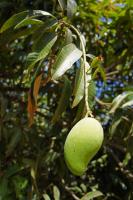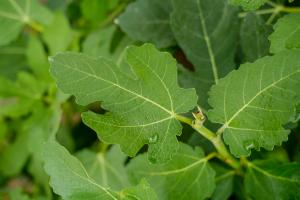Is Dolomite Good for Plants?
Dolomite is a naturally occurring mineral that many gardeners and farmers use as a soil amendment. It's known for its ability to raise soil pH levels, which makes it effective for growing plants that prefer alkaline soil conditions. However, there is some debate about whether dolomite is good for all types of plants and whether it has any negative effects on the ecosystem. In this article, we'll take a closer look at the benefits and drawbacks of using dolomite as a soil amendment.
Benefits of Using Dolomite
One of the main benefits of using dolomite is its ability to increase soil pH levels. This is because dolomite contains a high amount of calcium and magnesium, which are both alkaline minerals. When you add dolomite to your soil, it can help neutralize acidic soil conditions and create a more balanced pH level.
In addition to its pH-balancing properties, dolomite also provides other essential nutrients that plants need to grow. For example, it contains potassium, which helps strengthen plant roots and improve water retention. Dolomite also provides calcium, which is important for developing strong cell walls and preventing diseases in plants.
Finally, dolomite can help improve soil structure by creating a more porous soil texture. This allows air and water to flow more freely through the soil, which promotes healthy root growth.
Drawbacks of Using Dolomite
While dolomite can have many benefits for plants, it's important to consider some of its potential drawbacks as well. One issue to be aware of is the risk of over-application. If you add too much dolomite to your soil, it can actually cause soil alkalinity to become too high, which can be harmful to some plant species.
Another concern with using dolomite is its impact on the environment. Mining dolomite can have negative effects on the environment, including soil erosion, water pollution, and destruction of natural habitats. It's important to source dolomite from companies that practice sustainable mining practices and take steps to minimize their environmental impact.
What Plants Benefit from Dolomite?
Dolomite is best suited for plants that prefer alkaline soil conditions, such as many vegetables (including tomatoes, peppers, and squash), fruits (such as melons, grapes, and blueberries), and herbs (like basil and thyme). It can also be beneficial for ornamental plants, like roses and hydrangeas.
However, there are some plants that do not tolerate alkaline soil conditions and may be harmed by the addition of dolomite. These include acid-loving plants, like rhododendrons, azaleas, and blueberries, as well as some trees and shrubs, like oaks and spruces. If you're not sure whether dolomite is appropriate for the plants you're growing, consult a gardening expert for advice.
Conclusion
Overall, dolomite can be a beneficial soil amendment for many types of plants. It can help raise soil pH levels, provide essential nutrients, and improve soil structure. However, it's important to use dolomite in moderation and be aware of its potential drawbacks, including over-application and environmental concerns. If you're unsure whether dolomite is right for your garden or farm, consult a professional for guidance.

 how many times do yo...
how many times do yo... how many planted tre...
how many planted tre... how many pine trees ...
how many pine trees ... how many pecan trees...
how many pecan trees... how many plants comp...
how many plants comp... how many plants can ...
how many plants can ... how many plants and ...
how many plants and ... how many pepper plan...
how many pepper plan...






























